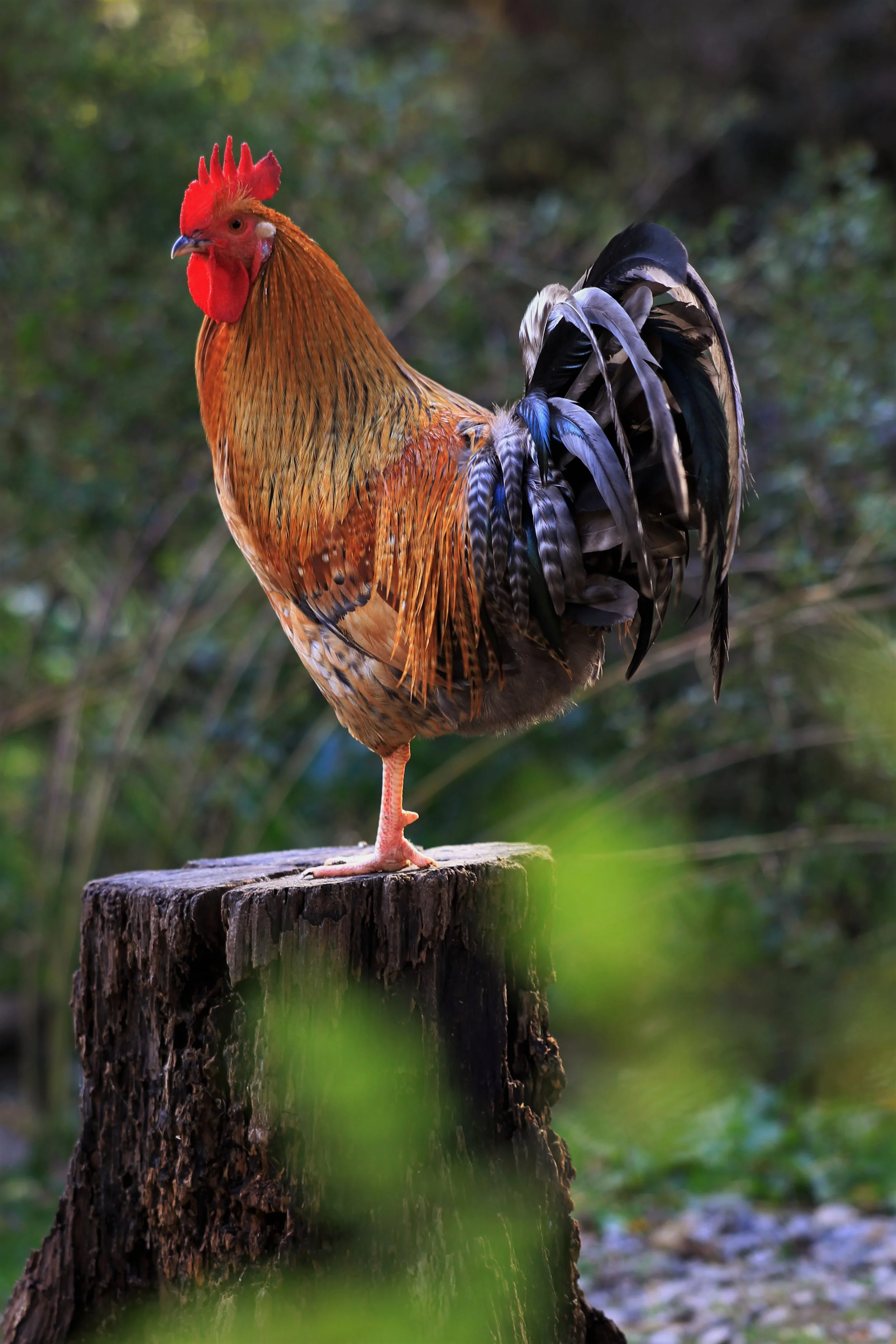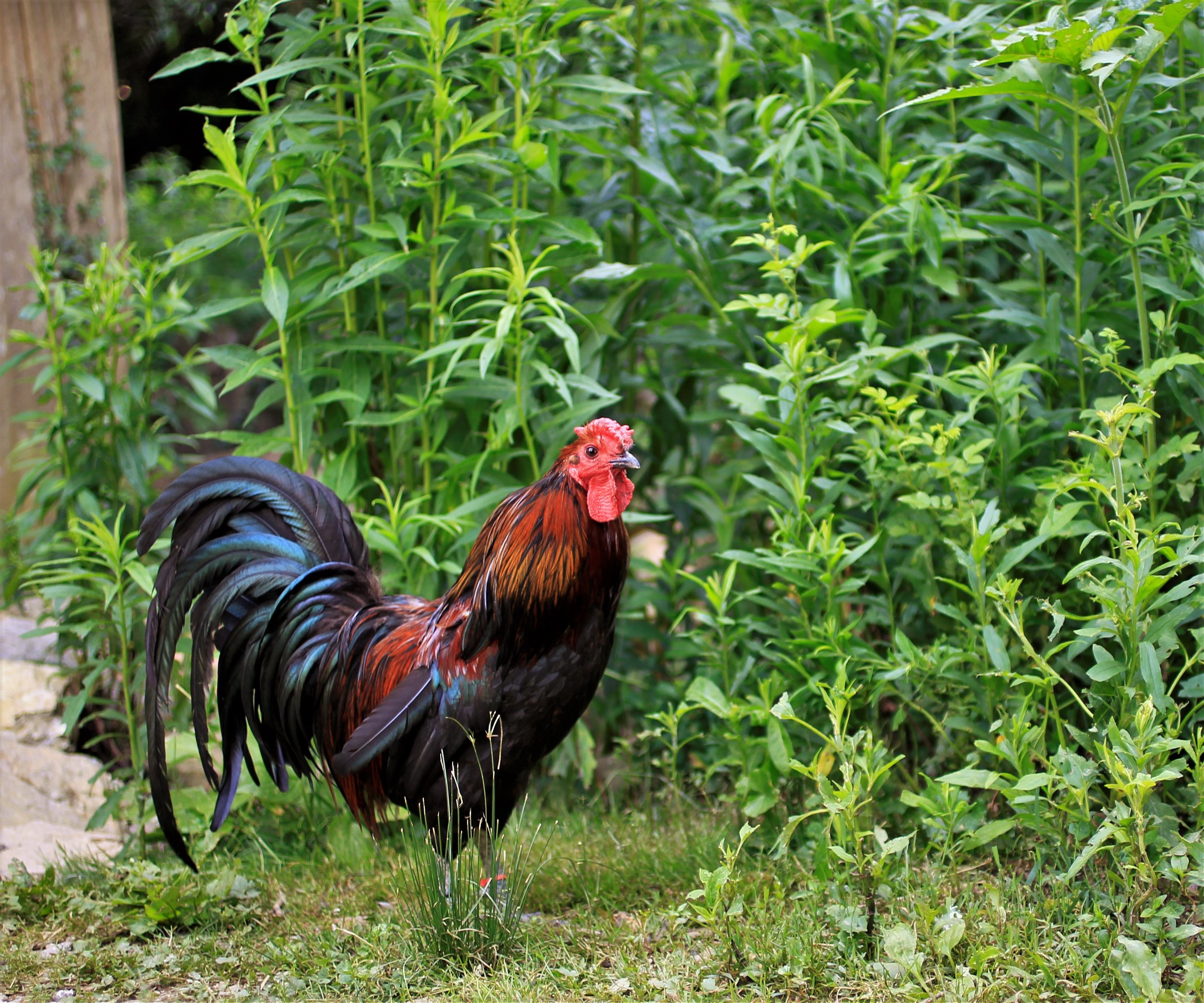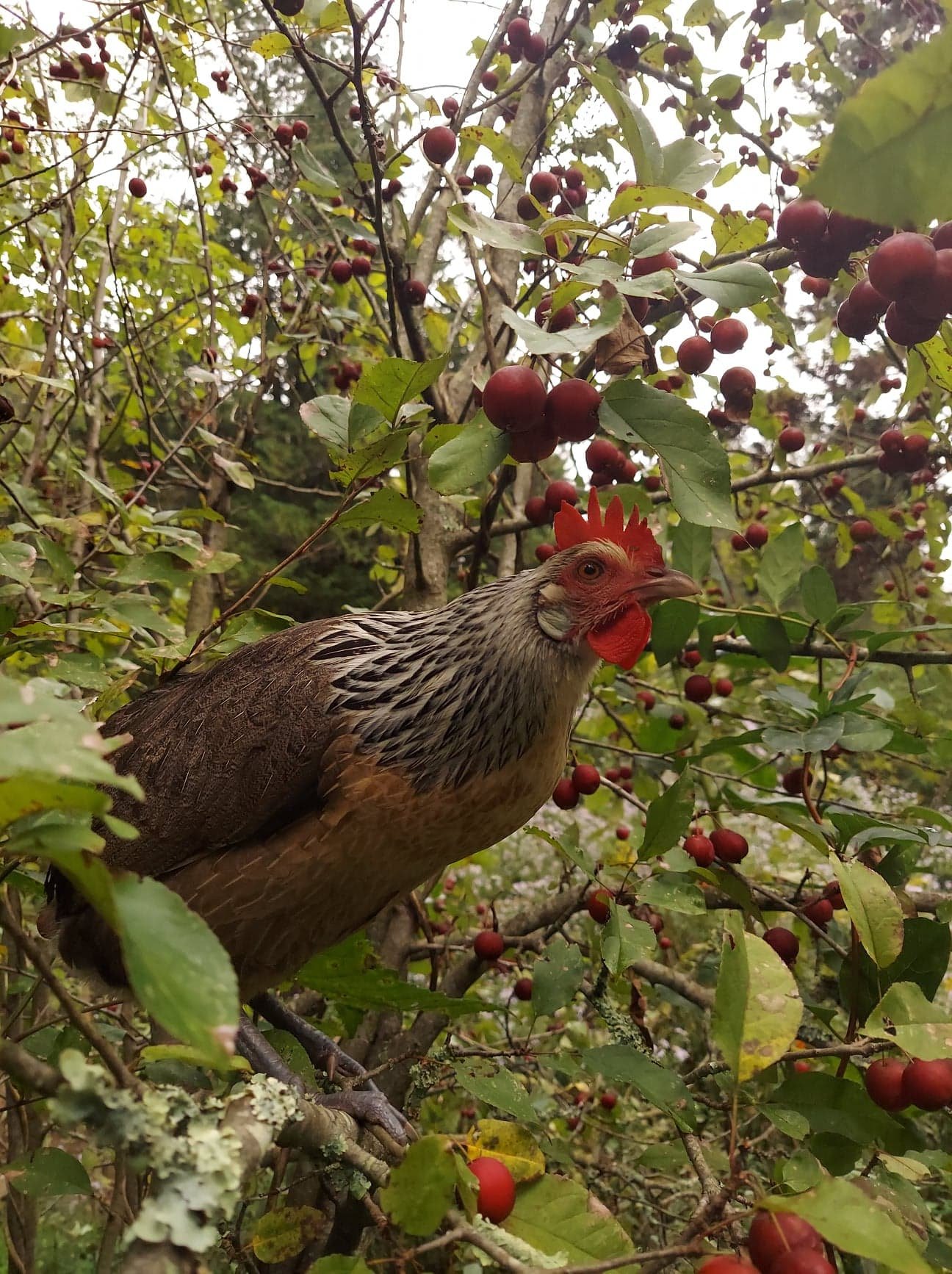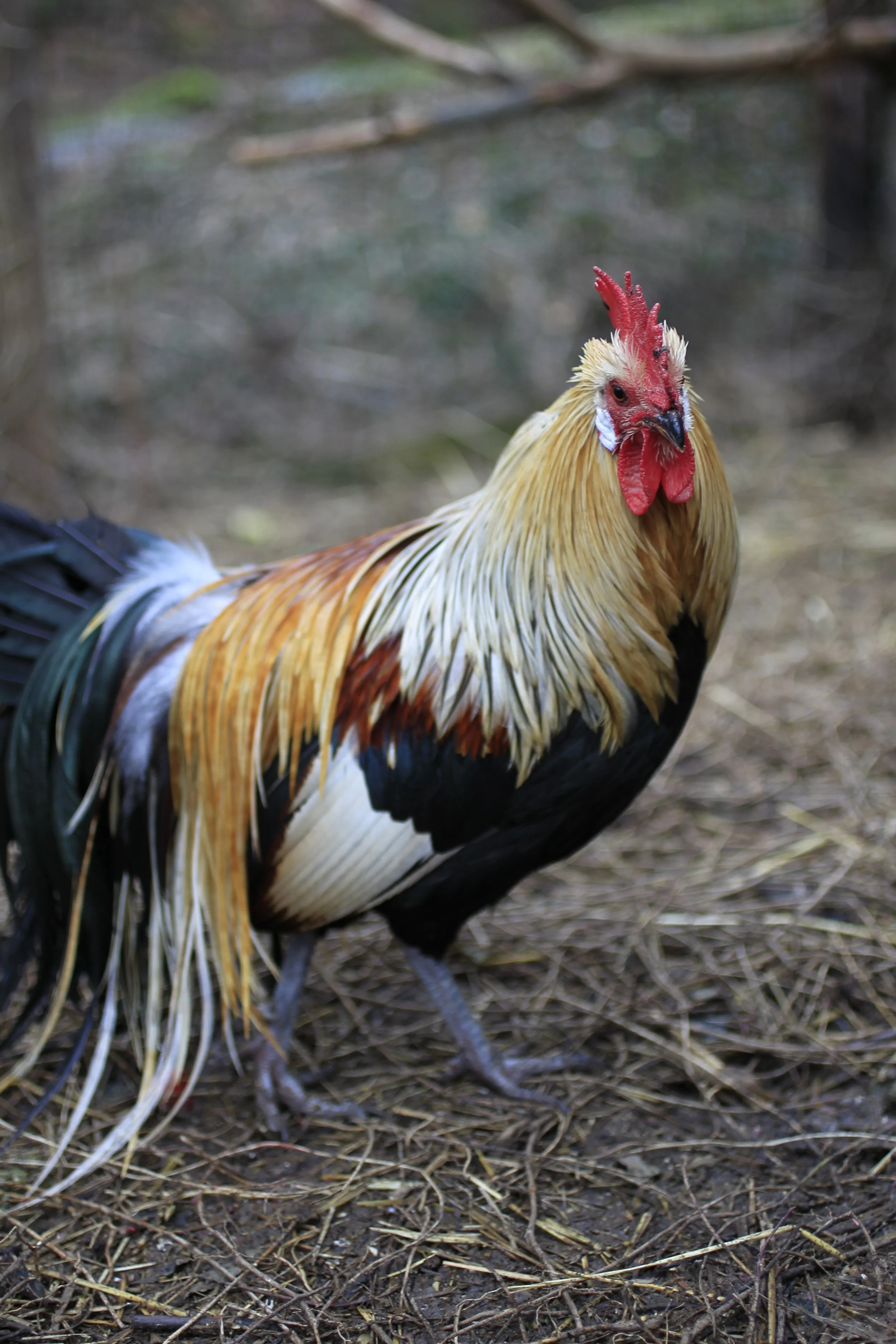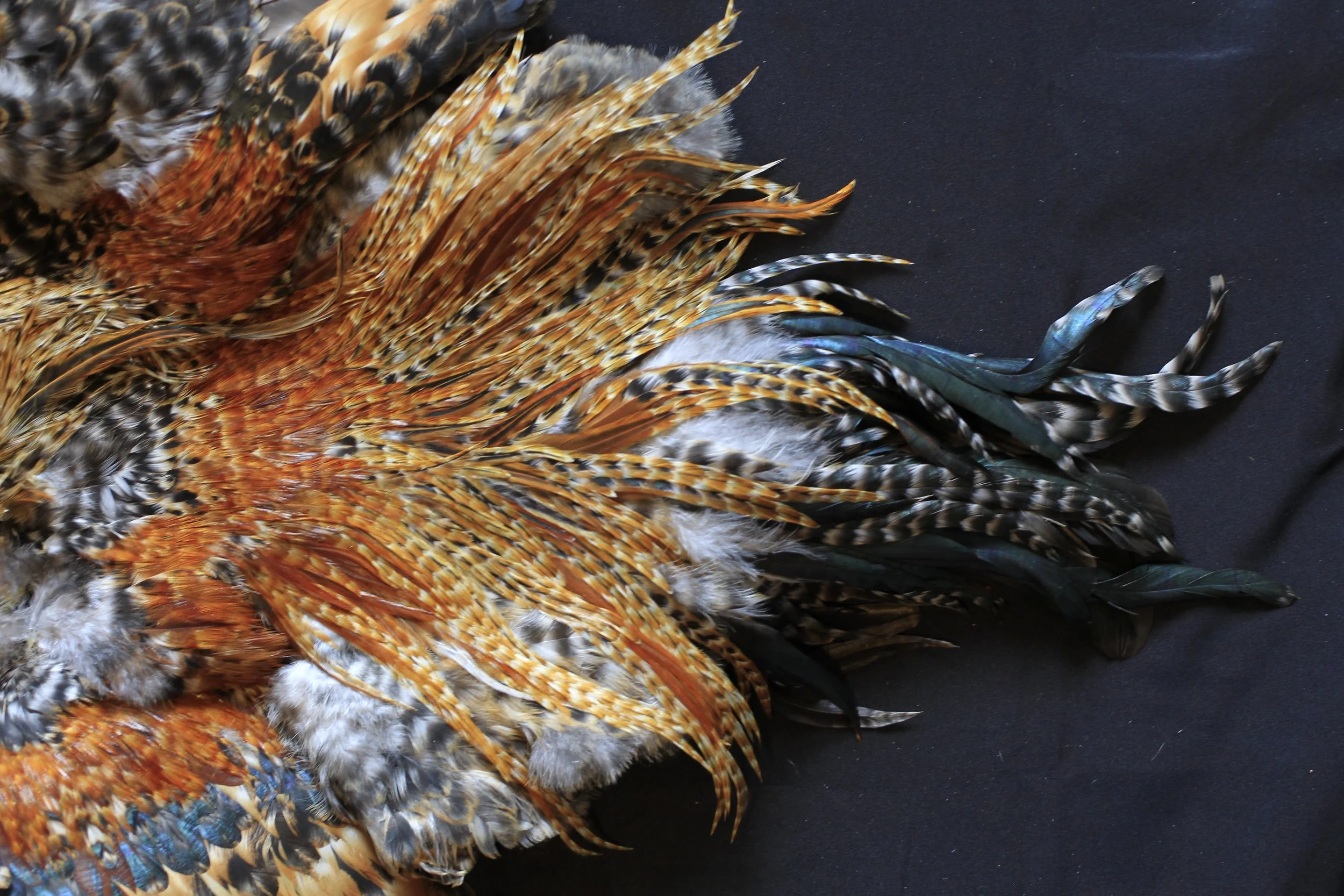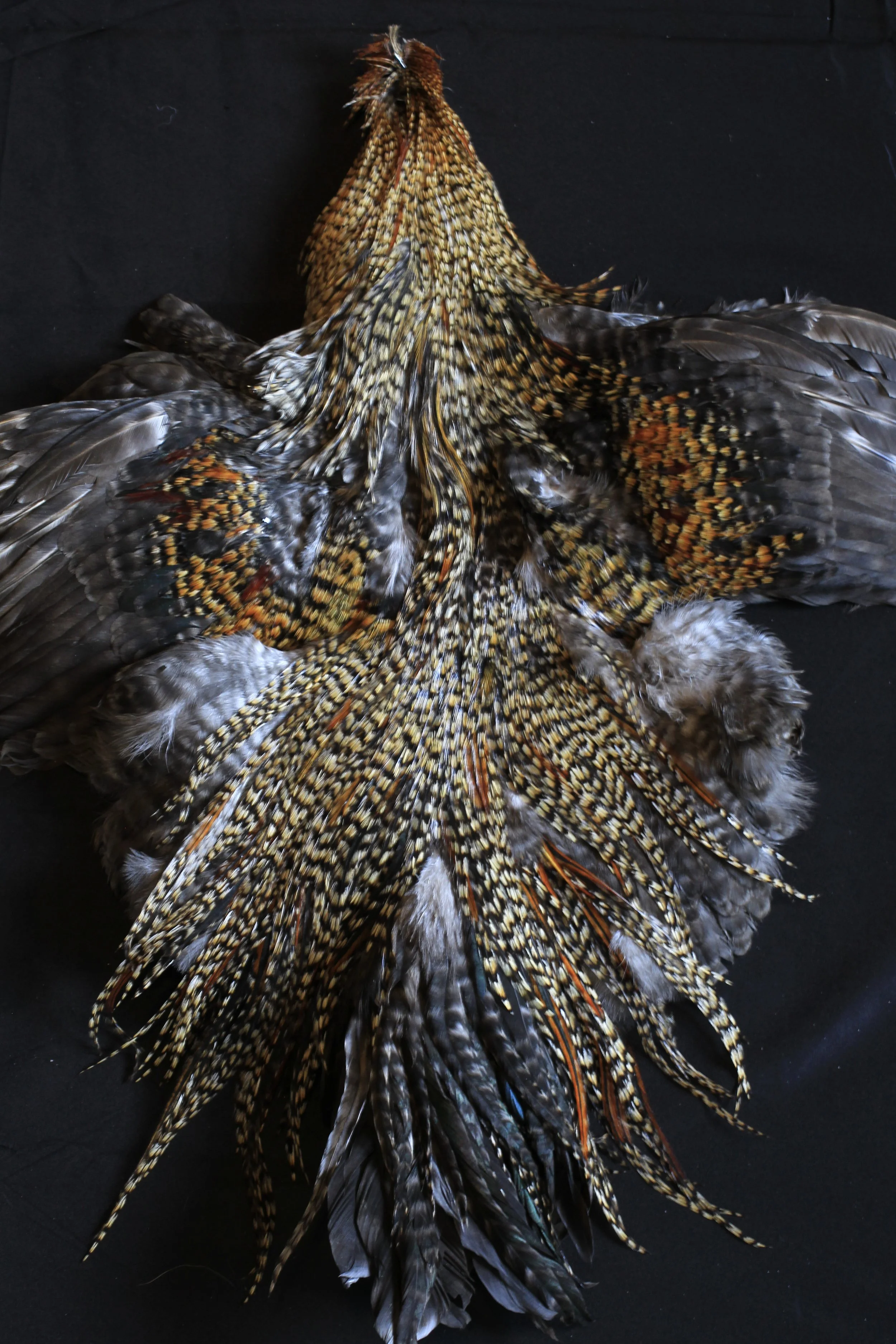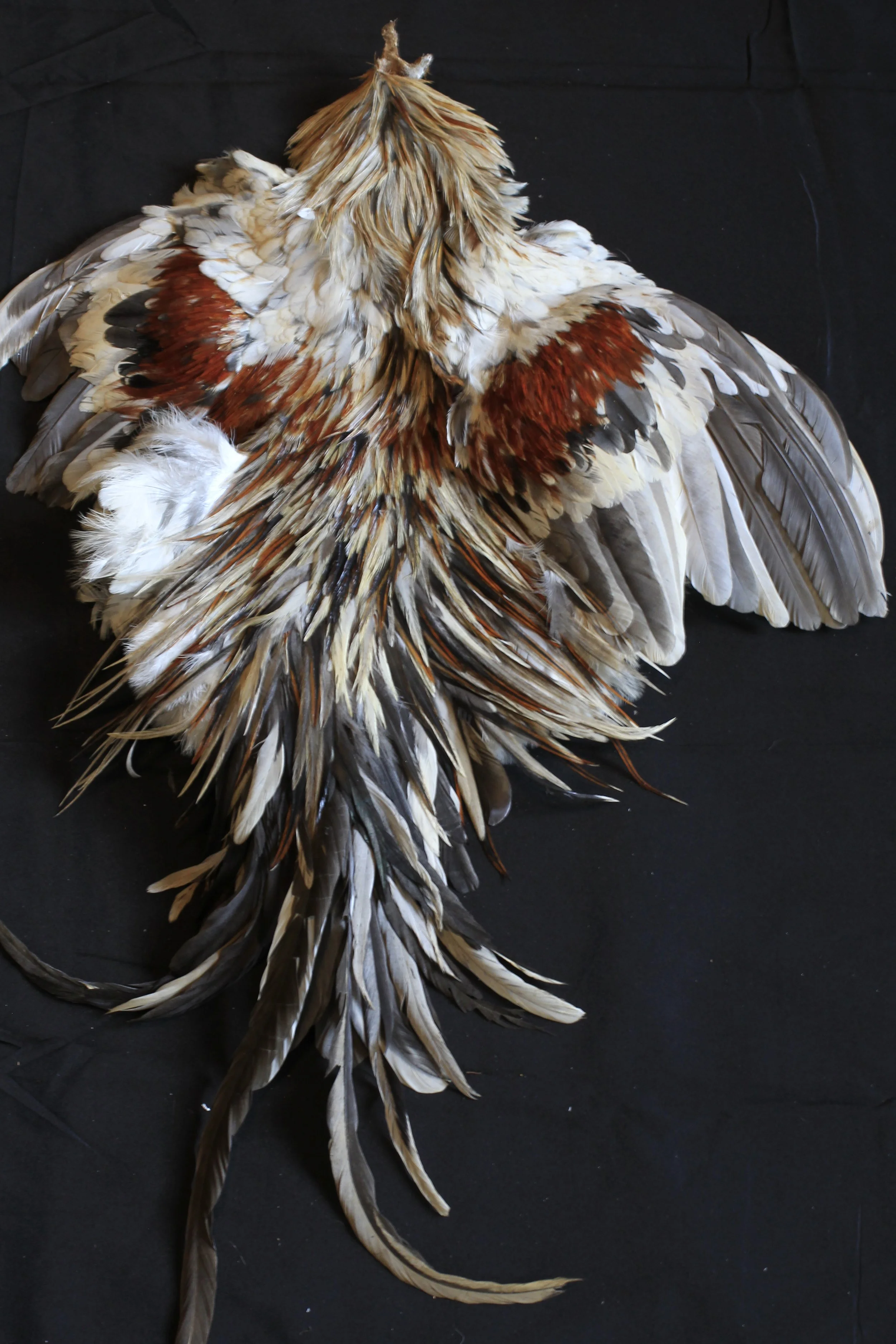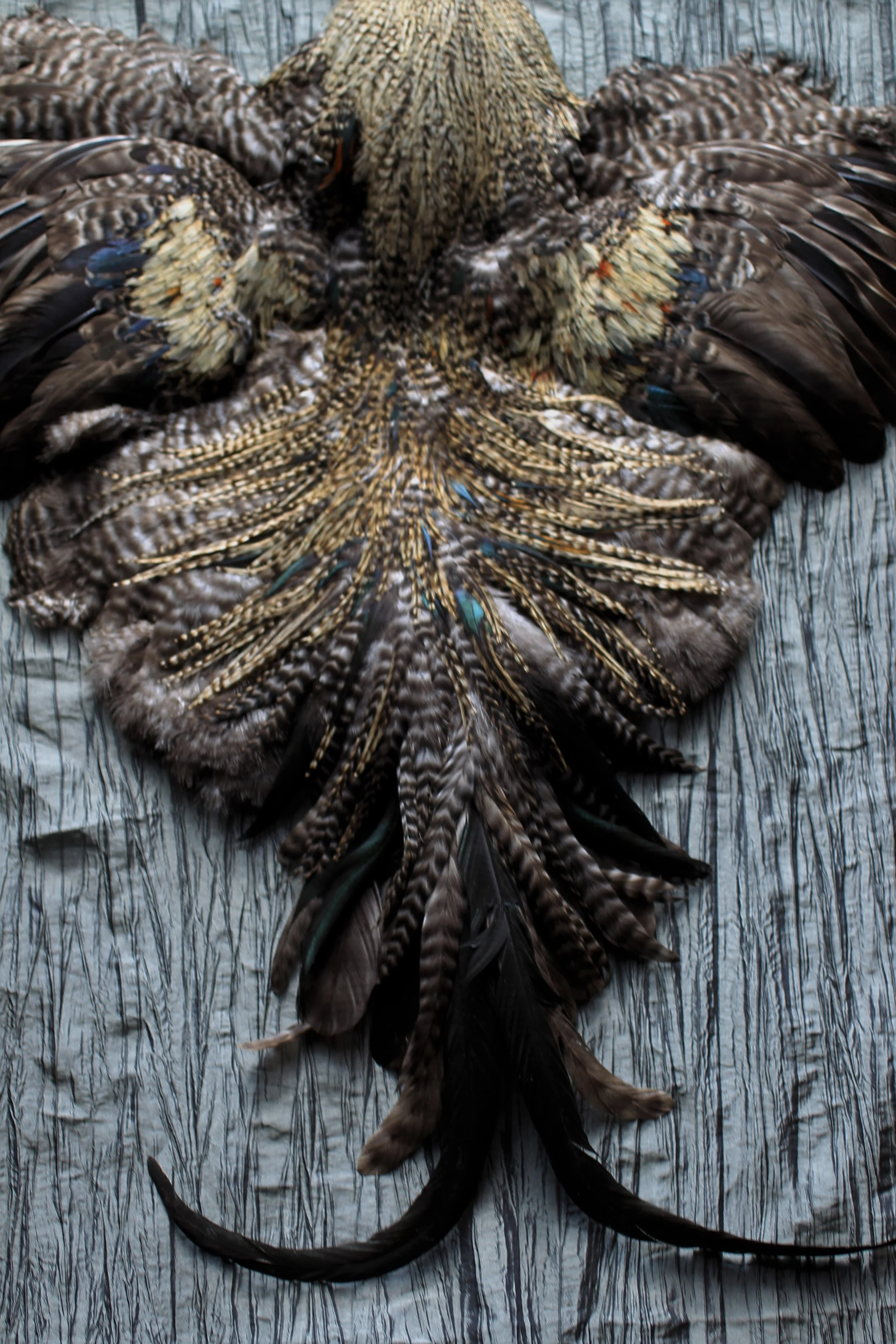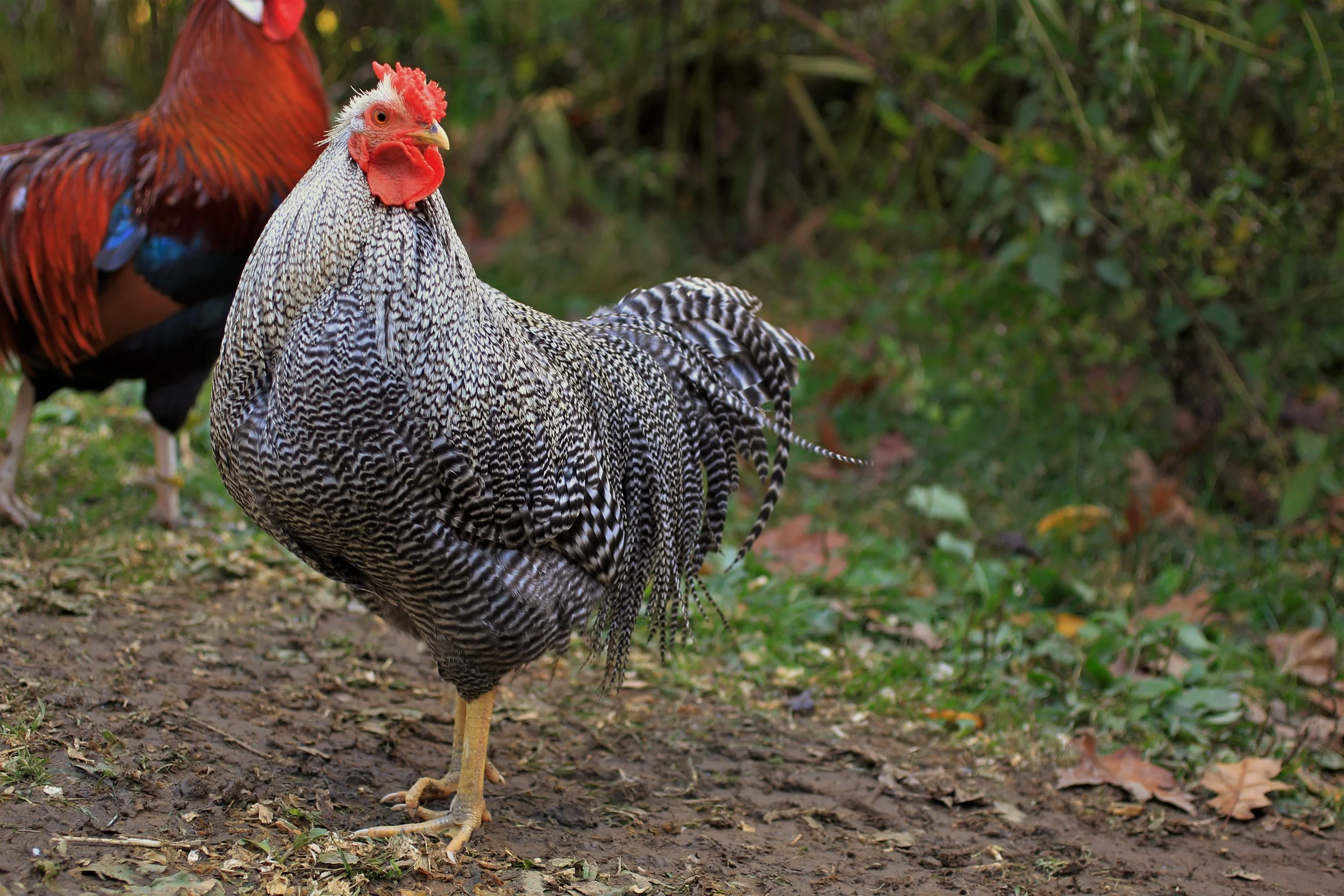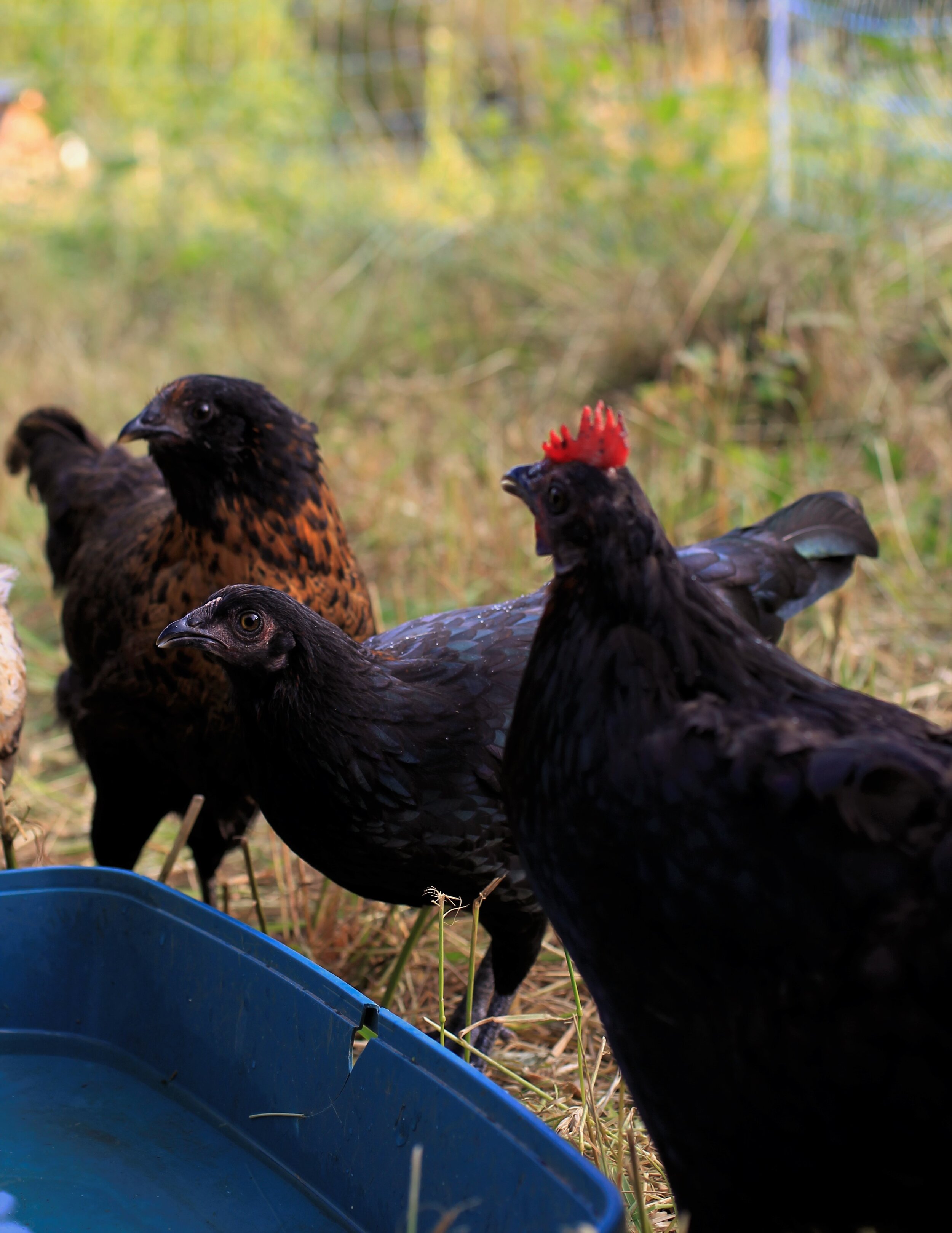
The Wild Way Flock
Our laying flock was unique, developed on the farm to fit our specific farm system.
Our goal with our 100% free range flock was to develop birds who required less commercial feed than traditional hens, were predator savvy and active foragers, consistently laid colorful eggs, and whose roosters dressed out well for our personal consumption and grew feathers sought after by fly tyers.
We started in 2020 with a flock of feral hens from New York- they had been wild and self-selecting for over 10 years, living without human intervention or care. We began a number of different genetic lines by crossing our Phoenix, Liege Fighters, Cubalaya, and Ameracauna, with our feral hens. Even though we had only been working to expand the flock and its potential for a short time, we already had birds in 2023 who were active foragers, fantastic flyers, intelligent, good layers of colorful eggs, and had the foundation of quality feathers for tying.
In a system where interdependence and a web of interconnections are key to ecological health and farm success, developing a flock that fills as many roles as possible helps develop a resilient, thriving farm.
Pasture Raised
The flock lived in a large mobile coop, which was moved every three days to fresh forage. The coop followed our Idaho Pasture Pigs or Timshel Wildland’s cattle, allowing the chickens to spread the manure, add their own, and reduce our pest load. The combination of these species adds huge amounts of Carbon (from the pigs/cows) and Nitrogen (from the chickens) to the soil, and the result is lush, dense vegetation. Moving the coop frequently ensures high density, intensive pressure and subsequent prolonged periods of rest and recovery for the plants. Frequent, long distance moves also encouraged our wild hens to lay their eggs in the coop rather than the forest or greater pasture.
Active Foragers
In order to truly integrate with a natural system, domestic animals must utilize the abundant, wild food sources present. While most commercial breeds rely heavily, if not entirely, on commercial feed for their diet, our tri-purpose flock received a maximum of 10 pounds of feed per day for all 200+ birds. Their ability to find and utilize all of the vegetation, invertebrates, and small vertebrates within the native ecosystem greatly reduced their reliance on external inputs, improved their health, allowed them to integrate more fully with the native landscape, and produced eggs, meat, and feathers that are of the highest quality.
Multi-Purpose
Every animal on the farm fills multiple roles; this creates a farm system that is resilient in the face of stress and change. The roosters raised from our Wild Way flock spent their days roaming our pastures and woodlands, developing complex flavor and delightful plumes. Once their feathers were fully grown in, the best individuals were selected for breeding, and the remaining birds were harvested for meat and feathers. Their pelts were harvested, dried, and cleaned, and were available locally and online, and their meat was sold to our community. Our hens were retained for egg laying.
Flock Protection
With free ranging comes the threat of predators, especially in a rural area like ours was.
We had a team of livestock guardian dogs (LGDs) who watched over our chicken flock. They lived full time with our chickens and kept all manner of predators at bay. Because the dogs lived within the portable chicken fences, the wildlife was still able to occupy its natural role within the ecosystem, and the chickens were also kept safe. It’s a natural way to stop our wildlife from enjoying an easy meal from the farm.
Our team included Esther, Finn, and Charlie. Esther was a female Great Pyrenees who was raised from a puppy on the farm. Finn was a rescued male Akbash who came to us as an adult in August 2021. Charlie, another rescue, was a male Great Pyrenees. They made a fierce team, and we were so grateful to have them as co-workers; they made it possible to have free range flocks.
Our dogs are now continuing their work both with the tri-purpose flock in Illinois, and on a small family farm in Virginia.


